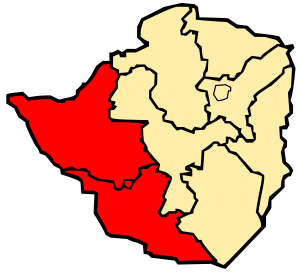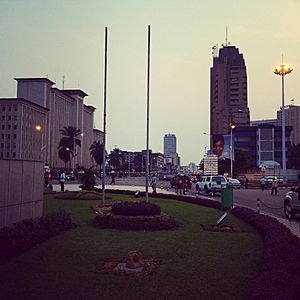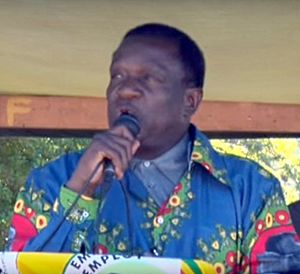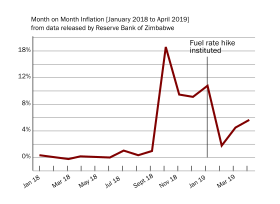Emmerson Mnangagwa facts for kids
Quick facts for kids
Emmerson Mnangagwa
|
|
|---|---|
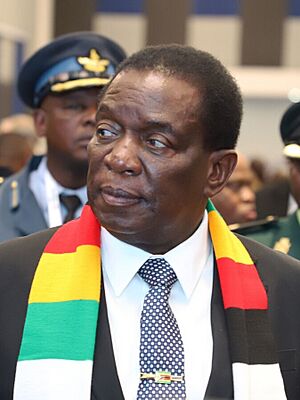
Emmerson Mnangagwa in 2023
|
|
| 3rd President of Zimbabwe | |
| Assumed office 24 November 2017 |
|
| Vice President |
|
| Preceded by | Phelekezela Mphoko (acting) |
| First Secretary of ZANU-PF | |
| Assumed office 19 November 2017 |
|
| Second Secretaries |
|
| Preceded by | Robert Mugabe |
| Chairman of Southern African Development Community | |
| Assumed office 17 August 2024 |
|
| Preceded by | João Lourenço |
| First Vice-President of Zimbabwe | |
| In office 12 December 2014 – 6 November 2017 |
|
| President | Robert Mugabe |
| Preceded by | Joice Mujuru |
| Succeeded by | Constantino Chiwenga |
| Minister of Justice, Legal and Parliamentary Affairs | |
| In office 11 September 2013 – 9 October 2017 |
|
| President | Robert Mugabe |
| Deputy | Fortune Chasi |
| Preceded by | Patrick Chinamasa |
| Succeeded by | Happyton Bonyongwe |
| In office 31 December 1989 – 1 July 2000 |
|
| President | Robert Mugabe |
| Preceded by | Eddison Zvobgo |
| Succeeded by | Patrick Chinamasa |
| Minister of Defence | |
| In office 13 February 2009 – 11 September 2013 |
|
| President | Robert Mugabe |
| Preceded by | Sydney Sekeramayi |
| Succeeded by | Sydney Sekeramayi |
| Minister of Rural Housing and Social Amenities | |
| In office 9 April 2005 – 13 February 2009 |
|
| President | Robert Mugabe |
| Deputy | Joel Biggie Matiza |
| Succeeded by | Fidelis Mhashu |
| Speaker of Parliament | |
| In office 18 July 2000 – 9 April 2005 |
|
| Preceded by | Cyril Ndebele |
| Succeeded by | John Nkomo |
| Minister of State for National Security | |
| In office 1980–1988 |
|
| Prime Minister | Robert Mugabe |
| Preceded by | Office established |
| Succeeded by | Sydney Sekeramayi |
| Member of Parliament | |
| In office 13 May 1980 – 2014 |
|
| Succeeded by | Auxillia Mnangagwa |
| Constituency | Midlands (1980–1985) Kwekwe East (1985–1990) Kwekwe (1990–2000) Appointed (2000–2008) Chirumanzu–Zibagwe (2008–2014) |
| Personal details | |
| Born |
Dambudzo Mnangagwa
15 September 1942 Shabani, Southern Rhodesia (now Zvishavane, Zimbabwe) |
| Political party | ZANU–PF (since 1987) |
| Other political affiliations |
|
| Spouses |
Jayne Matarise
(m. 1973; died 2002)
|
| Relations | Tongai Mnangagwa (nephew) |
| Children | 18 (including David) |
| Education |
|
| Signature | |
| n.b. | |
Emmerson Dambudzo Mnangagwa (born 15 September 1942) is a politician from Zimbabwe. He has been the President of Zimbabwe since 2017. He is a member of the ZANU–PF political party.
Before becoming president, he was a close helper to former president Robert Mugabe. He held many important jobs in the government. From 2014 to 2017, he was Mugabe's First Vice-President. He became president after a change in leadership in 2017. He won his first full term as president in the 2018 election. He was re-elected in August 2023.
Mnangagwa was born in 1942 in a town called Shabani in what was then Southern Rhodesia. His family were farmers. In the 1950s, his family moved to Northern Rhodesia because his father was involved in politics. There, Emmerson became active in politics against colonial rule. In 1963, he joined the Zimbabwe African National Liberation Army (ZANLA). This was the armed group of the Zimbabwe African National Union (ZANU).
He returned to Rhodesia in 1964 as a leader of the "Crocodile Gang." This group attacked farms owned by white people. In 1965, he was put in prison for ten years. After his release, he was sent to Zambia. He later studied law at the University of Zambia. He worked as a lawyer for two years. Then, he went to Mozambique to rejoin ZANU. In Mozambique, he became Robert Mugabe's assistant and bodyguard. He went with Mugabe to the Lancaster House Agreement in 1979. This agreement led to Zimbabwe becoming an independent country in 1980.
After Zimbabwe became independent, Mnangagwa held many senior government jobs under Mugabe. From 1980 to 1988, he was the first Minister of State Security. He was in charge of the national intelligence agency. His role during a difficult period in the 1980s, known as the Gukurahundi massacres, is a topic of discussion. During this time, many Ndebele civilians were killed.
Mnangagwa was Minister of Justice from 1989 to 2000. Then, he was the Speaker of Parliament from 2000 to 2005. He was later given a less important job as Minister of Rural Housing. This happened because he was openly trying to become Mugabe's successor. He became more favored again during the 2008 election. He managed Mugabe's election campaign.
Mnangagwa was Minister of Defence from 2009 to 2013. He then became justice minister again. In 2014, he was appointed First Vice-President. Many people thought he would be the next leader after Mugabe.
Mugabe's wife, Grace Mugabe, and her political group, called Generation 40, did not want Mnangagwa to become president. Mugabe removed Mnangagwa from his jobs in November 2017. Mnangagwa then left for South Africa. Soon after, General Constantino Chiwenga and others in the military launched a change in leadership. Mugabe then resigned, and Mnangagwa returned to Zimbabwe to become president.
Mnangagwa is often called "Garwe" or "Ngwena" in the Shona language. These words mean 'The crocodile'. This nickname first came from the name of a guerrilla group he started. It later came to mean his cleverness in politics. Because of this, the group that supports Mnangagwa in ZANU–PF is called Lacoste. This is after the French clothing company known for its crocodile logo. He is also known as "the Godfather" in his home province of Midlands.
Contents
Early Life and Education
Growing Up in Southern Rhodesia
Emmerson Dambudzo Mnangagwa was born on 15 September 1942. He was born in Shabani, a mining town in central Southern Rhodesia. His parents, Mafidhi and Mhurai Mnangagwa, were farmers who were involved in politics. He came from a large family. His grandfather had many wives and sons. Emmerson was the third of ten children.
As a child, Mnangagwa looked after cattle. He also visited the local chief's court to watch legal cases. His grandfather, Mubengo Kushanduka, was a big influence on him. His grandfather had served the Ndebele king Lobengula. He also fought in the Second Matabele War in the 1890s. Mnangagwa loved listening to his stories.
In the late 1940s, Mnangagwa's father, Mafidhi, became the acting chief of the village. In 1952, a white land officer took cattle from the villagers. Mafidhi's helpers then removed a wheel from the officer's vehicle. Mafidhi was arrested. The district commissioner told him to go to Northern Rhodesia. He moved to the town of Mumbwa.
Several years later, Mafidhi sent for his family, including Emmerson. They arrived in Mumbwa by train in 1955. More relatives joined them over time. In Mumbwa, Mnangagwa first met Robert Mugabe. Mugabe stayed with the Mnangagwa family while working at a teachers' college. Mugabe inspired Mnangagwa to get involved in politics against colonial rule.
School and Early Political Actions
Mnangagwa started primary school in Shabani. He continued his studies at Myooye School in Mumbwa. Most of his classmates had three names, but he only had one, Dambudzo. He found a book by the American writer Ralph Waldo Emerson in the school library. He decided to add "Emmerson" before his given name.
After Myooye, Mnangagwa finished his primary education at Mumbwa Boarding School. From 1958 to 1959, he attended Kafue Trade School. There, he took a building course.
In 1959, Mnangagwa left Kafue early to attend Hodgson Technical College. This was a top school in the country. He passed the entrance exam and was accepted. At Hodgson, he studied industrial building. He became involved in student politics against colonial rule. He was elected an officer of the college's United National Independence Party (UNIP) branch. In 1960, he was found responsible for setting a college building on fire and was expelled.
After being expelled, he started a construction company with three other men. It lasted three months. UNIP leaders then asked him to help organize the party in Bancroft. He did this until the end of 1961. He then returned to Lusaka. There, he worked for a private company and served as secretary of the UNIP Youth League.
Revolutionary Activities
Joining the Fight for Independence
In 1962, Willie Musarurwa asked Mnangagwa to join the Zimbabwe African People's Union (ZAPU). This was a new party in Southern Rhodesia that wanted independence. Mnangagwa became a guerrilla fighter for ZAPU's armed group, the Zimbabwe People's Revolutionary Army (ZIPRA). He was sent to Tanganyika (now Tanzania) for training.
In April 1963, Mnangagwa and 12 other ZAPU members went to Egypt for training. They trained at the Egyptian Military Academy in Cairo. In August 1963, ten of these trainees, including Mnangagwa, joined the Zimbabwe African National Union (ZANU). ZANU had just formed as a separate group from ZAPU.
Mnangagwa soon left Tanganyika to train for ZANU's armed group, the Zimbabwe African National Liberation Army (ZANLA). He was part of the first group of ZANLA fighters sent overseas for training. He and four others went to Beijing, China. He studied at Peking University and had combat training in Nanjing. He returned to Tanzania in May 1964.
The Crocodile Gang
When he returned to Tanzania, Mnangagwa helped start the Crocodile Gang. This was a ZANLA guerrilla unit. They were meant to get weapons, but none were available. The group went to the ZANU Congress in Gwelo in May 1964.
The Crocodile Gang was tasked with recruiting new members from cities. They also smuggled people across the border into Tanzania for training. ZANLA leaders later asked the group to take stronger actions to get attention.
On 4 July 1964, the Crocodile Gang attacked and killed Pieter Johan Andries Oberholzer. He was a white factory foreman and police reservist. This event was the first act of violence in what became the Rhodesian Bush War. The government then took strong action against ZANU and ZAPU. The gang continued its actions, setting up roadblocks and attacking white-owned farms. They were known for using knives and leaving anti-government papers.
Time in Prison
In late 1964, Mnangagwa caused an explosion on a train near Fort Victoria. He was arrested in January 1965. He was tortured and reportedly lost hearing in his left ear. He was sentenced to death, but his lawyers argued he was under 21. He was instead sentenced to ten years in prison.
Mnangagwa spent time in different prisons. He was at Salisbury Central Prison, Grey Street Prison, and Khami Maximum Security Prison. At Khami, he was held with other political prisoners. His cell was very basic. He was allowed out for only 15 minutes a day at first. Conditions for black prisoners were much worse than for white prisoners.
After four years, conditions improved slightly. Mnangagwa was allowed to work as a tailor. Later, he had to crush rocks as hard labor. He was released from Khami in January 1972. He was then moved back to Salisbury Central Prison. There, he became friends with Mugabe. He attended Mugabe's prison classes and passed his O-Levels and A-Levels. They studied law together through correspondence courses.
In 1975, after more than ten years in prison, he was released. He was sent to Zambia, where his parents lived. He continued his education at the University of Zambia. He graduated with a law degree. He then worked for a law firm and was admitted to the Zambian bar in 1976.
ZANU Leadership and Independence
While in Lusaka, Mnangagwa was also secretary for ZANU's Zambia Division. After working as a lawyer, he moved to Mozambique. He became a security chief for ZANU. He met Mugabe again and became his assistant and bodyguard. In 1977, he was elected special assistant to President Mugabe. He also became a member of ZANU's National Executive. In this role, Mnangagwa led both the civilian and military parts of ZANU.
In 1979, Mnangagwa went with Mugabe to negotiations in London. These talks led to the Lancaster House Agreement. This agreement ended Rhodesia's unrecognized independence and brought majority rule. In January 1980, Mnangagwa led the first group of civilian leaders into what would become the Republic of Zimbabwe.
Political Career After Independence
Minister of State for National Security: 1980–1988
In March 1980, before Zimbabwe's independence, Robert Mugabe named his first cabinet. Mnangagwa was made Minister of State for National Security. This job included overseeing the national intelligence agency. In this role, Mnangagwa built strong relationships with Zimbabwe's security forces. He also became Chairman of the Joint Operations Command. He oversaw the joining of different armed groups into one national army.
In the 1985 election, Mnangagwa won his seat in Parliament with 86% of the vote.
Gukurahundi Massacres
While Mnangagwa was Minister of State for National Security, the 5th Brigade of the Zimbabwe National Army caused the deaths of many Ndebele civilians. This happened in the Matabeleland region of western Zimbabwe. These events, known as the Gukurahundi, took place from 1983 to 1987. Thousands of people died.
Mnangagwa has denied being involved in these events. He stated that he was not the president, defense minister, or army commander. However, many people, including other governments and human rights groups, believe he played a significant role. As national security minister, his intelligence agency worked with the army. They aimed to control ZAPU, a rival political party that had support from Ndebele people.
Before the events, Mnangagwa gave speeches criticizing the opposition. In one speech in 1983, he called government opponents "cockroaches" and "bugs." He said they needed to be removed. He also said that their villages should be burned. He also stated that those who followed government laws would live longer, but those who helped "dissidents" would have their lives shortened.
When the events began, Mnangagwa was responsible for explaining the situation to other countries. He made most of the public comments for the Zimbabwean government. Documents from the United States and Australian embassies show Mnangagwa's awareness of these events. While the 5th Brigade did most of the killings, the intelligence agency helped by finding and questioning people. They also shared information with the 5th Brigade.
The Gukurahundi ended with the Unity Accord on 22 December 1987. This agreement joined ZAPU with the ruling ZANU–PF party. In 1988, Mugabe offered forgiveness to all "dissidents."
Minister of Justice: 1988–2000
In 1988, President Mugabe appointed Mnangagwa Minister of Justice, Legal and Parliamentary Affairs. This was seen by some as a less important job for him. He had hoped to be Minister of Defence.
Mnangagwa was re-elected to Parliament in 1990 and 1995. These elections had reports of voter intimidation.
While serving as justice minister, Mnangagwa also acted as finance minister for a short time. In 1998, Mnangagwa was put in charge of Zimbabwe's involvement in the Second Congo War. The Zimbabwean army went into the Democratic Republic of the Congo to support its president. During this war, Mnangagwa gained wealth through minerals from the Congo.
Speaker of Parliament: 2000–2005
In the 2000 election, Mnangagwa lost his seat in Parliament. He was defeated by Blessing Chebundo of the Movement for Democratic Change. Despite this, Mugabe appointed Mnangagwa to one of the unelected seats in Parliament.
On 18 July 2000, Mnangagwa was elected Speaker of the House of Assembly. This was the first time the speaker was chosen by a competitive vote since independence.
During his time as speaker, Mnangagwa continued to face questions about his mining interests in the Congo. A 2001 United Nations report called him "the architect of the commercial activities of ZANU–PF." A 2002 UN report said he was involved in using mineral wealth from the Congo. It also said he helped make Harare a center for illegal diamond trading. The report suggested he should face travel bans and financial limits. The next year, the United States placed sanctions on him.
In December 2004, there were public disagreements within ZANU–PF. Mnangagwa was criticized for supposedly planning against Mugabe. This happened after a meeting to discuss replacing Mugabe's choice for vice-president, Joice Mujuru, with Mnangagwa.
At the ZANU–PF party meeting in December 2004, Mujuru was named vice-president. Mnangagwa lost his job as ZANU–PF's secretary for administration. This job had given him power to appoint allies. He was given a less important job as secretary for legal affairs.
Minister of Rural Housing: 2005–2009
In the March 2005 election, Mnangagwa lost his seat again to Blessing Chebundo. Mugabe again appointed Mnangagwa to an unelected seat in Parliament. John Nkomo replaced Mnangagwa as Speaker. In the new government, Mugabe named Mnangagwa Minister of Rural Housing and Social Amenities. This was seen as a step down for him.
In 2005, Mnangagwa helped with "Operation Murambatsvina." This initiative destroyed urban slums where many people who opposed Mugabe lived. This left thousands of poor people homeless. By 2007, Mnangagwa was reportedly back in Mugabe's favor.
2007 Alleged Coup Attempt
In May 2007, the Zimbabwean government said it had stopped an alleged plan to overthrow the government. This plan supposedly involved nearly 400 soldiers. The government said the soldiers planned to remove Mugabe and ask Mnangagwa to form a new government.
Mnangagwa said he knew nothing about the plan and called it "stupid." Some people thought that rivals to Mugabe, like Solomon Mujuru, might have been behind the plan. They might have wanted to make Mnangagwa look bad.
People accused of being involved were charged with treason. However, no trial ever happened because there was not enough evidence.
2008 Election and Return to Favor
In the March 2008 election, Mnangagwa won his seat in the new Chirumanzu–Zibagwe area. He won by a large number of votes.
Mnangagwa was Mugabe's main election helper during the 2008 presidential election. He led Mugabe's campaign behind the scenes. After Mugabe did not win enough votes in the first round, Mnangagwa organized a campaign of violence. This happened before the second round of voting. This caused the opposition candidate, Morgan Tsvangirai, to withdraw. This ensured Mugabe stayed in power.
Minister of Defence: 2009–2013
After the Movement for Democratic Change – Tsvangirai won most seats in Parliament in 2008, Mnangagwa played a key role. He helped create a power-sharing agreement between ZANU–PF and the MDC–T. When the Government of National Unity started in February 2009, Mnangagwa became Minister of Defence.
Despite his past actions, Mnangagwa spoke positively about the coalition government in 2011. He said, "a lot of things have happened that are positive... we can work together without too many problems."
However, human rights groups accused Mnangagwa of using his influence to organize violent pro-ZANU–PF groups. This was before the 2013 election. Mnangagwa denied these claims. He said he wanted the elections to be "free and fair." He also denied wanting to be president. In the election, Mugabe was re-elected president. ZANU–PF also won back its majority in Parliament.
On 10 September 2013, Mugabe announced a new cabinet. Mnangagwa was appointed Minister of Justice, Legal and Parliamentary Affairs again. He had held this job before from 1989 to 2000.
Vice Presidency (2014–2017)
On 10 December 2014, President Mugabe appointed Mnangagwa as First Vice-President of Zimbabwe. This seemed to confirm he would be Mugabe's successor. This happened after Mnangagwa's long-time rival, Joice Mujuru, was removed from her position. She was accused of plotting against Mugabe. Mnangagwa said he was happy with the outcome. He was sworn in as vice-president on 12 December 2014. He also kept his job as Minister of Justice. Soon after, it was reported that Mugabe had started giving some presidential duties to Mnangagwa.
As vice-president, Mnangagwa focused on improving Zimbabwe's farming and trade with other countries. He helped make trade deals with countries like Russia, China, and South Africa. In 2015, he also led trade groups to Europe to try and restart trade ties. In July 2016, Mnangagwa visited China. He met with business and government leaders. During that trip, he said Zimbabwe needed to improve its development. This reportedly made Mugabe angry.
In 2016, Mnangagwa announced "Command Agriculture." This was a farming program supported by the African Development Bank. The program would involve farmers growing maize. The government would decide how much maize was grown and its price.
Power Struggles and Dismissal
For a while, Joice Mujuru was seen as Mnangagwa's main rival to become president. But after she was removed, Grace Mugabe became a new rival. By late 2015, Mnangagwa's political goals openly clashed with those of Grace Mugabe. She was seen as a possible successor to her husband.
ZANU–PF was divided into two main groups. One was called Generation 40 (G40), led by Grace Mugabe. The other was the Lacoste faction, thought to be led by Mnangagwa. Mnangagwa had support from war veterans and the military. Grace Mugabe, who was newer to politics, had support from younger party members.
By 2016, Grace Mugabe was openly criticizing Mnangagwa at political events. She accused him of disloyalty. She also made fun of his hopes to become president. She asked, "Didn't you hear there's no vacancy at State House?" She also accused Mnangagwa's allies of trying to bomb her dairy farm.
On 11 August 2017, Mnangagwa reportedly became ill at a ZANU–PF event. He was flown to South Africa for surgery. Doctors reportedly found traces of a substance in his liver. Rumors spread that Grace Mugabe had ordered his poisoning. Mnangagwa denied these rumors and pledged loyalty to Mugabe.
On 9 October 2017, President Mugabe announced a new cabinet. Mnangagwa lost his job as justice minister. On 6 November 2017, Mugabe dismissed Mnangagwa as vice-president. This move seemed to clear the way for Grace Mugabe to become president. The official reason for his dismissal was "disloyalty, disrespect, deceitfulness, and unreliability."
2017 Change in Leadership
On 8 November 2017, two days after being dismissed, Mnangagwa left Zimbabwe. He went to Mozambique and then South Africa. He said he was escaping "constant threats" against him and his family. Around a week later, on 14 November 2017, parts of the Zimbabwean military took control of the state broadcaster and key areas of Harare.
The next day, Major General Sibusiso Moyo announced that the military was not taking over. He said President Mugabe was safe. He stated that the military was "targeting criminals" causing problems in the country.
On 19 November 2017, ZANU–PF removed Mugabe from his position. Grace Mugabe and many of her supporters were also expelled from the party. Mnangagwa, who was in South Africa, was chosen as the party's new leader. He was expected to become president soon. Mugabe was given a deadline to resign. He eventually resigned the next day. ZANU–PF immediately nominated Mnangagwa as his successor.
Mnangagwa returned to Zimbabwe on 22 November. He was sworn in on 24 November 2017. The day before his inauguration, Mnangagwa asked his supporters not to seek revenge against his political rivals.
Presidency (2017–Present)
Inauguration
Mnangagwa was sworn in as Zimbabwe's president on 24 November 2017. The ceremony took place at the National Sports Stadium in Harare. About 60,000 people attended. Many African leaders and foreign guests were there. Opposition leaders like Morgan Tsvangirai and Joice Mujuru also attended.
In his speech, Mnangagwa promised to serve all citizens. He also vowed to reduce corruption and improve the economy. He said he would "reengage with the world." He also praised Mugabe as "a father, mentor, comrade in arms, and my leader." He said that Mugabe's land reform programs would continue. However, white farmers would be paid for their seized land.
Mnangagwa asked for an end to sanctions against Zimbabwean officials. He also stated that the 2018 election would happen as planned.
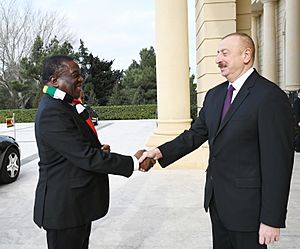
Foreign Relations
On 18 January 2018, Mnangagwa showed he wanted to work with Western countries. He invited the United Nations, European Union, and the Commonwealth to watch the 2018 elections. He also wanted to improve relations with the United Kingdom and rejoin the Commonwealth.
In March 2021, President Joe Biden of the United States criticized Mnangagwa. He mentioned violent actions against citizens and a lack of democratic changes. The US extended sanctions on Zimbabwe. In July 2023, Mnangagwa attended a summit in Russia. He met with Russian President Vladimir Putin. Mnangagwa supported Russia's actions in Ukraine.
Cabinet and Early Challenges
On 27 November 2017, Mnangagwa dissolved the Cabinet of Zimbabwe. He appointed only two temporary ministers. His new cabinet was named on 30 November 2017.
His new cabinet choices were criticized in December 2017. This led him to replace two ministers. On 6 December 2017, Mnangagwa was criticized again. This was because soldiers and police removed street vendors in Harare. They took the goods the vendors were selling. Some vendors said Mnangagwa was worse than Mugabe.
Assassination Attempt
In 2018, a grenade exploded near Mnangagwa at a rally in Bulawayo. This happened as he was leaving the stage. Mnangagwa was not hurt. However, several members of the ZANU-PF party were injured. This included his first and second vice-presidents.
Fuel Protests
In January 2019, Mnangagwa announced that fuel prices would increase by 130%. This was to stop oil smuggling. Zimbabwe had a financial crisis. Its local currency was supposed to be worth the same as the US dollar, but it was worth much less. This made fuel prices seem artificially low. People were buying cheap fuel and selling it for profit in other countries. This made inflation worse.
To lower inflation, Mnangagwa's government raised prices. This made fuel in Zimbabwe among the most expensive in the world. Protests broke out across the country. The police and military responded with force. Hundreds of people were arrested, and 12 people died. Mnangagwa said that claims of misconduct by the security forces would be investigated.
Re-election and Recent Events
Mnangagwa was re-elected on 23 August 2023 for his second term. The election results were disputed. His party, ZANU-PF, has been the only party to control the presidency since Zimbabwe's independence. This led to suspicions and claims of fraud from the opposing party.
On 4 March 2024, the United States placed sanctions on Mnangagwa, his wife, and other Zimbabwean officials. This was due to human rights concerns, corruption, and mineral smuggling.
On 2 September 2024, Mnangagwa announced that he would not seek a third term in 2028. He stated he would finish his current term.
In early 2025, protests against Mnangagwa's presidency grew. Calls for him to resign increased, even from former allies. People were unhappy about the country's economic problems and claims of corruption. In response, Mnangagwa changed his military leadership. He appointed Emmanuel Matatu as army chief. These events happened amid talk that Mnangagwa might try to stay president beyond 2028. This has added to the uncertainty about Zimbabwe's future.
Political Views
Economic Empowerment
Since the early 1990s, Mnangagwa has played a key role in a program called "Indigenisation and Black Economic Empowerment." This program aims to give more economic power to local Black Zimbabweans. It focuses on creating policies and a government ministry for this purpose. Mnangagwa believes that Zimbabwe's natural resources should be protected by the country's military.
Views on Trade
In the months before the 2023 election, Mnangagwa accused Zimbabwean Indians of hoarding basic goods. He said he would take their property.
Personal Life
Mnangagwa has been married twice. He has eighteen children and many grandchildren. His first wife, Jayne Matarise, was a cousin of a ZANLA commander. They married in September 1973 and had six children. Jayne Mnangagwa died in 2002.
While married to Jayne, Mnangagwa started a relationship with Auxillia Kutyauripo. Their first son was born in 1984. They reportedly married after Jayne's death in 2002. Auxillia Mnangagwa was elected to Parliament in 2015. She took the seat her husband left when he became vice-president. She did not run for re-election in 2018. She wanted to focus on her role as First Lady. In 2021, she received a national award.
His oldest child, Farai Mlotshwa, owns a real estate business. His youngest daughter, Tariro, is part of a female anti-poaching unit. She was in an anti-poaching film called Gonarezhou. His youngest son with Jayne Matarise, Emmerson Tanaka, is a musician known as St Emmo. His oldest son with Auxillia, Emmerson Jr., works in business. His twin sons, Sean and Collins, are an engineer and businessman.
His son David Kudakwashe Mnangagwa is a youth member of Parliament. He is also the deputy minister of finance. His nephew Tongai Mnangagwa is also a minister.
Mnangagwa owns a farm called Pricabe. He received it in 2002 as part of a land reform program.
Honours
- Honorary degrees
| Location | Date | School | Degree | Gave Commencement Address |
|---|---|---|---|---|
| 10 October 2018 | University of Zimbabwe | Doctor of Laws (LL.D) | Yes | |
| 29 June 2019 | University of Zambia | Doctor of Laws (LL.D) | Yes | |
| 9 August 2019 | Zimbabwe National Defence University | Doctor of Philosophy (Defence and Security Studies) (Ph.D.) | Yes | |
| 4 October 2019 | Chinhoyi University of Technology | Doctor of Engineering (D.Eng) | Yes | |
| 8 November 2019 | National University of Science and Technology | Doctor of Science (D.Sc.) | Yes |
- Freedom of the City
Images for kids
See also
 In Spanish: Emmerson Mnangagwa para niños
In Spanish: Emmerson Mnangagwa para niños
 | May Edward Chinn |
 | Rebecca Cole |
 | Alexa Canady |
 | Dorothy Lavinia Brown |


